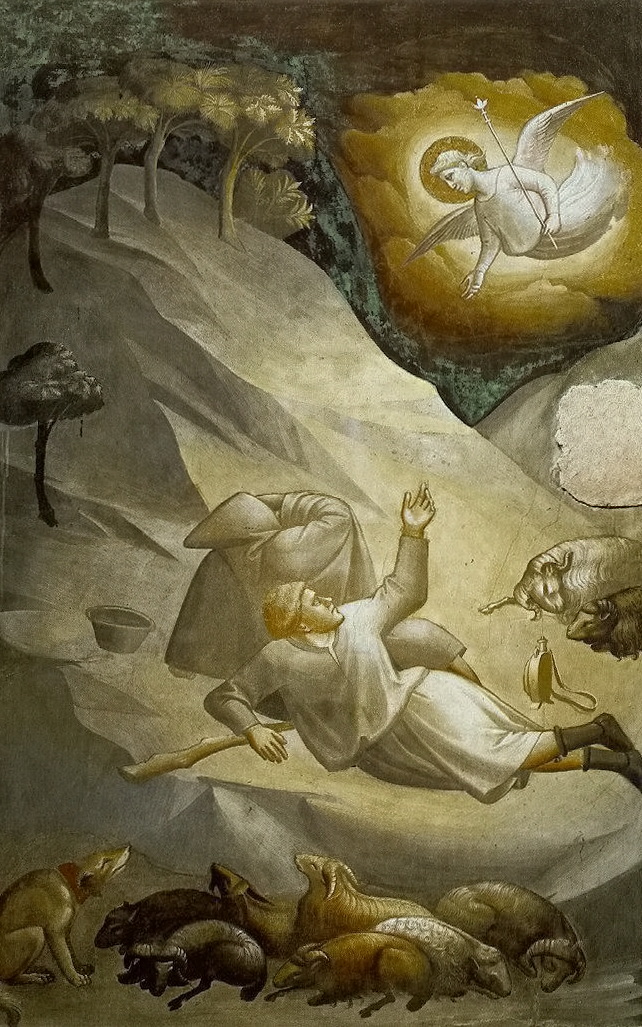Despite Lent I am fascinated with Christmas: In reading about the Nativity I got sidetracked by the detail of swaddling clothes (previous post), and then by the annunciation to the shepherds. Here are some notes I copied from the Catena Aurea, in case such things interest you. In Scripture every word is considered, a person or event or detail is never mentioned without significance. Which leads to no end of little details to meditate on:
Ambrose: with what care God builds up our faith: “An Angel teaches Mary; an Angel teaches Joseph; an Angel the shepherds also…”
Chrysostom: “To Joseph the Angel appeared in a dream, as to one who might be easily brought to believe, but to the shepherds in visible shape as to men of ruder nature. But the Angel went not to Jerusalem, sought not for Scribes and Pharisees, (for they were corrupt and tormented with envy.) But these [shepherds] were simple men living in the ancient practices of Moses and the Patriarchs. There is a certain road which leads by innocence to Philosophy.”
Bede: No where in the whole course of the Old Testament do we find that the Angels who so constantly appear to the Patriarchs, came with light. This privilege was rightly kept for this time when there arose in the darkness a light to them that were true of heart. Hence it follows, and the glory of God shone round about them. He is sent forth from the womb, but He shines from heaven. He lies in a common inn, but He lives in celestial light.
Cyril: on anointing: Christ – anointed, like the kings of old, or by prophetic grace, like Isaiah says to Cyrus (Isaiah 45), or as in the anointing by the Holy Spirit, as God Himself anoints those who believe in Him.
Why do they keep saying he is in swaddling clothes? Not, as in my previous post, to emphasize that he was not naked, which probably was assumed, but rather to emphasize that he was not born into riches:
Bede: “the sign given us of the newborn Saviour was, that He would be found not clothed in Tyrian purple, but wrapped in poor swaddling clothes, not laying on gilded couches, but in a manger”
Maximus: “But if perhaps the swaddling clothes are mean in thy eyes, admire the Angels singing praises together. If thou despisest the manger, raise thy eyes a little, and behold the new star in heaven proclaiming to the world the Lord’s nativity. If thou believest the mean things, believe also the mighty. If thou disputest about those which betoken His lowliness, look with reverence on what is high and heavenly.”
Of the heavenly chorus singing:
Gregory: “At the same time they also give praises because their voices of gladness accord well with our redemption, and while they behold our acceptance, they rejoice also that their number is complete.”
Origen: “How then does the Saviour say, I came not to send peace on the earth, whereas now the Angels’ song of His birth is, On earth peace to men? It is answered, that peace is said to be to men of good will. For the peace which the Lord does not give on the earth is not the peace of good will.”
Augustine: “For righteousness belongs to good will.”
The shepherds go in haste (Ambrose, “For no one indolently seeks after Christ.”). And they find Mary, Joseph and the babe, listed in that order… so not just Christ, but the Holy Family named so: first Mary, then Joseph, then Jesus.
